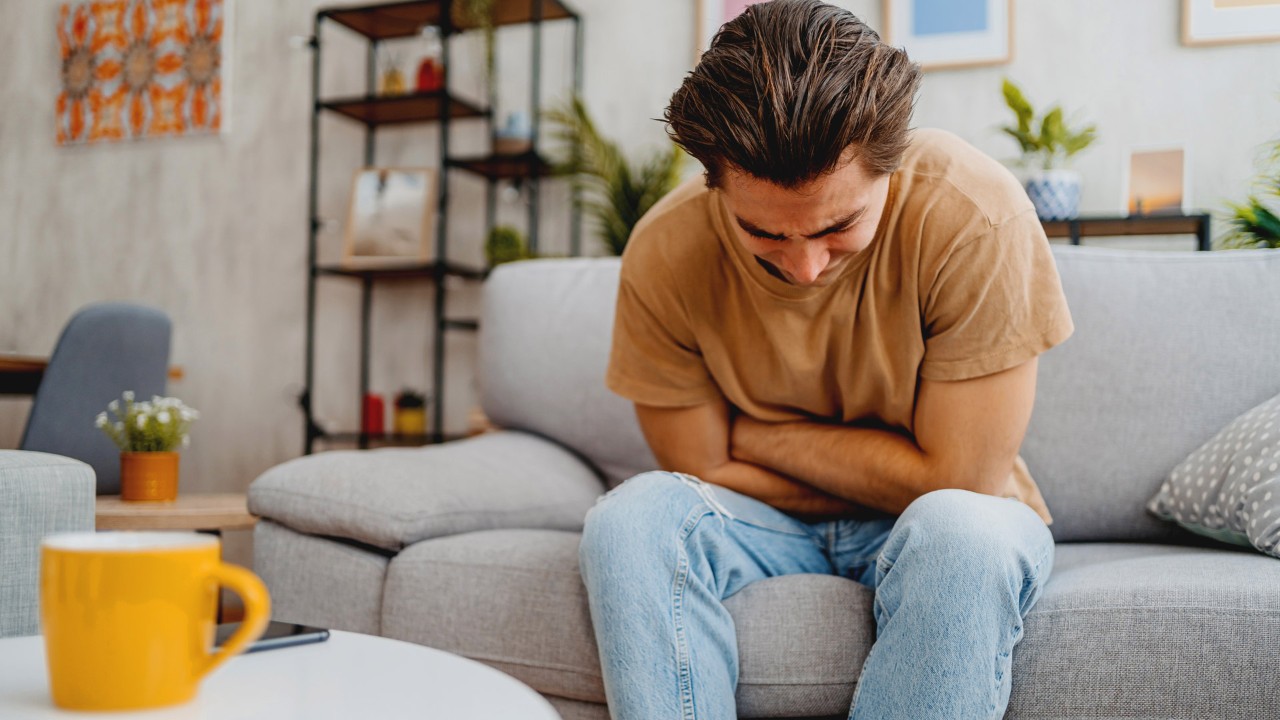Seven tips to help against snoring
Up to 60% of men and 40% of women snore. And how do you turn sleepless nights into snore-free rest?

Snoring is a clear indication that you’re sleeping. But the person next to you is often awake – and annoyed. Snoring is actually the result of relaxation: during sleep, our palatal muscles relax and the uvula and soft palate begin to flutter when we breathe. The tongue falls back, blocking the airways even more and causing audible vibrations, i.e. noise. Or simply: noise. This can also have unpleasant consequences for snorers themselves.
Getting to the bottom of snoring: in the bedroom
To find out why we snore, it’s best to start where it happens – in the bedroom, or more precisely: in bed. How we lie determines whether we snore. The supine position is particularly problematic. The reason: in this position, the windpipe lies exactly below the tongue and palate. When they relax, gravity does the rest.
People who snore should therefore first check the position they sleep in. In some cases, it helps to sew a tennis ball into your pyjamas to make sure you sleep on your side. A higher pillow can also help. Allergies can also trigger snoring. In sensitive people, animal hair and house dust mites increase the chance that the airways will swell.
Effect of alcohol and medication
What we eat or drink before going to bed can also influence our snoring. Alcohol is particularly problematic. It encourages the muscles to relax, which makes us snore. Some sleeping pills have the same effect. If possible, you should do without. The person sharing the bed with you will thank you for it.
The influence of obesity and cigarettes
Our lifestyle also has an influence on snoring: being overweight, for example, also causes body fat to build up in the throat and narrow the airways. So, a low-fat and low-sugar diet not only improves our general quality of life, but also helps us sleep better. The same applies for smoking. There is evidence today that it increases the risk of snoring.
Combat snoring with splints and strips
Today there are various products that help to keep the airways clear. Snoring splints are commonly used, particularly with sleep apnoea. These sit between the teeth to keep the lower jaw in position to prevent obstruction of the airway. Another popular and comparatively cheap remedy are nasal strips, which prevent the nostrils from closing. Both splints and strips are available in the pharmacy.
How to stop snoring: seven simple tips
-
Fight the flab
For those who are overweight, losing a few kilos is the most effective way to stop snoring. If you’re carrying a few too many kilos, you store more fatty tissue in your throat. This causes the upper airways to narrow and increases the likelihood of snoring.
-
Change your sleeping position
If you sleep on your back, you’re more likely to snore because your tongue falls to the back of your throat. A side sleeping position is ideal so that the airways remain clear. Tip: A tennis ball sewn into the back of the pyjamas prevents you from turning onto your back at night. It can also help to raise the head end of your bed.
-
No after-work drinks
If you have problems with snoring, it’s best to avoid beer or wine with your evening meal. This is because alcohol reduces the muscle tension in the throat, loosening the tissue and making it vibrate more strongly. Avoid drinking alcohol at least two hours before going to bed.
-
No sleeping pills
Don’t take sleeping pills, sedatives or certain kinds of medication against allergies. These relax the muscles around your throat and tongue, which promotes snoring.
-
Facial steam bath with eucalyptus
Eucalyptus oil loosens the mucus in the upper respiratory tract and frees the airways. For a facial steam bath, add about four drops of the essential oil to a litre of hot water, bend over the bowl and inhale for ten minutes. Eucalyptus oil is also anti-inflammatory. Applied to the sides of the nose, it reduces swelling of the nasal mucous membranes.
-
Nasal irrigator to clear your nose
If your nose is blocked due to a cold or allergy, an isotonic saline or sea salt solution has a relieving and moistening effect. It quickly removes dirt and allergy triggers from your nostrils.
-
Stop smoking
Smoking irritates the mucous membranes and causes them to swell. This makes the upper airways more sensitive and partially constricted. The tissue starts to vibrate when breathing, causing snoring.
Sometimes it’s something more serious
If nothing helps and your partner regularly lies awake as a result of your snoring, you will need to see a doctor. Heavy snoring can also affect your own sleep and lead to sleep apnoea. One indication of this is extreme tiredness with microsleeps or headaches in the morning. So, for the sake of your health, For the sake of your health.

Dr Klaus Kienast, a doctor with Medgate:
“Snoring isn’t necessarily unhealthy. However, over the years these harmless noises can develop into obstructive sleep apnoea that can lead to serious medical conditions. You should see a specialist if you snore loudly and you or your partner notice that your breathing stops during the night.”


